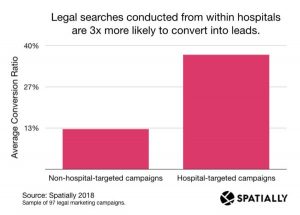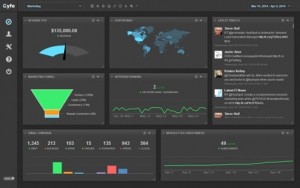Marketers should use attribution reports to assess trends and relative impact but it’s a slippery slope to draw big conclusions from absolute numbers.
We recently signed a major tech player as a client – a brand we were proud to add to our portfolio. As a marketer, I wondered what drove them to sign: was it our recent email marketing campaign? A new whitepaper? The 1:1 advertisement that made them take a demo?
It was none of the above. One of their employees saw us at a trade show six months ago and loved our presentation. It stuck with her half a year later when her colleagues were evaluating new webinar solutions. This is pretty typical human behavior: we have a thought, file it away and don’t revisit it until the topic is raised again.
But this is maddening to marketers, who expect things to unfold sequentially. We’ll contact a prospect, usher them through each stage of the funnel, nurturing at every turn, and they’ll become a customer. Then we can see what converted them – which marketing tactic we can “attribute” to the sale, so we can invest more in what’s working. The rise of data-driven marketing has made us want to attribute marketing tactics to sales. But that doesn’t account for what you can’t measure. And it certainly doesn’t mean you should pour all your resources into a few tactics.
Imagine going to a symphony. You’re enthralled with a trumpet solo and spend the rest of the evening listening specifically to the brass section. But would you leave the performance wanting to hear an orchestra of just horn instruments, without the strings, percussion, woodwinds and keyboards? I doubt it.
Marketers too often double down on one section of the orchestra, one segment of their marketing strategy. We forget that converting a prospect at your user conference disregards the long email nurture campaign that got them there in the first place. The article your PR agency secured drove people to your website, but it was the download of a customer case study that got you their contact information.
Fifty-six percent of marketers say attribution is important; another 33% say it’s nothing short of critical. Unfortunately, it’s not that simple. The problem is not that you shouldn’t look at attribution, but you shouldn’t have the mindset that you are in control as a marketer. The trend toward attribution creates a mindset that marketers simply need to develop a formula and they’ll reap the benefits.
I just don’t think our prospects are so simple that we can accurately credit one touchpoint for triggering a complex buying decision. We create these internal formulas for multi-touch attribution, claiming they’re nuanced. But these formulas tend to illustrate what we are prioritizing rather than what’s influencing our customers – marketers weigh these formulas according to what’s most important to us.
Marketers should use attribution reports to assess trends and relative impact, absolutely. But it’s a slippery slope to draw big conclusions from absolute numbers. For example, comparing the win rate of deals that include one type of touch versus another is reasonable. But concluding that one specific touch-type drove a certain amount of pipeline – solely on its own – is not. Some channels may see less conversion simply because there is more competition on that platform from your peers. Or the problem could be your execution rather than the channel itself. An attribution report can’t tell you why a tactic is underperforming, so that’s where marketers come in. It’s on us to be able to analyze and to optimize our efforts, place multiple bets on different channels, and trust that what we cannot measure will pay long-term dividends.
For my company, that meant taking some resources away from digital programs and putting them toward human-based evangelism. We launched a global event series, created dedicated customer workshops, live events and internal marketing programs aimed at key strategic accounts. These are bets we place trusting they will work out – even if it’s difficult to measure. We’ve hosted dinners so customers can network with their peers and learn new ways to leverage our solution. We’ve worked to “pay it forward” by doing testimonials and case studies for solutions we use in the marketing world. We try to cultivate true relationships with advocates and turn them into lifelong ambassadors.
Don’t get me wrong: I love data as much as the next marketer. But its seductive power is in making us think it can measure and control everything. It simply can’t. And if it did, why would we even need marketers? You could just automate the campaigns that work best for your company and get the results.
It’s not that attribution doesn’t add value. It’s that we marketers add a whole lot more. That conversation over dinner in which you truly connect with a customer and understand their distinct needs – the value of that can’t be entered into Salesforce. You can’t measure how quality customer service or personalized marketing content creates a brand ambassador who spreads the virtues of your solution to their peers through word of mouth.
Data can only measure the quantitative, but the qualitative marketing and real connection is so much more important than an open or click-thru rate. And the qualitative cannot be measured. So the next time you’re looking for a magical recipe or algorithm to measure your marketing efforts, just remember: the only formula for good marketing is that there is no formula.
Opinions expressed in this article are those of the guest author and not necessarily Marketing Land. Staff authors are listed here.
Marketing Land – Internet Marketing News, Strategies & Tips
(25)







